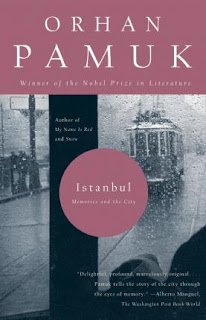Istanbul (book)

How do you write a book to convey to someone the essence of an entire city? Especially a city as historically and culturally complex as Istanbul. Moreover, is it possible to do so with any kind of objectivity when one’s personal experiences of a place shape one’s impression of it. Istanbul is by no means a travel guide but it definitely succeeds in giving the “feel” of the city. Orhan Pamuk does a magnificent job of bringing together history, architecture, art, sociology, and his own memoire to produce that feeling. Pamuk explores various medium which Istanbul has been perceived and discussed in the west and how this dialogue affected how Istanbul intellectuals and artists see their city. He argues that this is not a true reflection of the city but a westernised and romanticised version ; because historically there was so much pressure for Istanbul to become westernised the opinions of the west were lapped up without much criticism or self-reflection by the Istanbul ...
